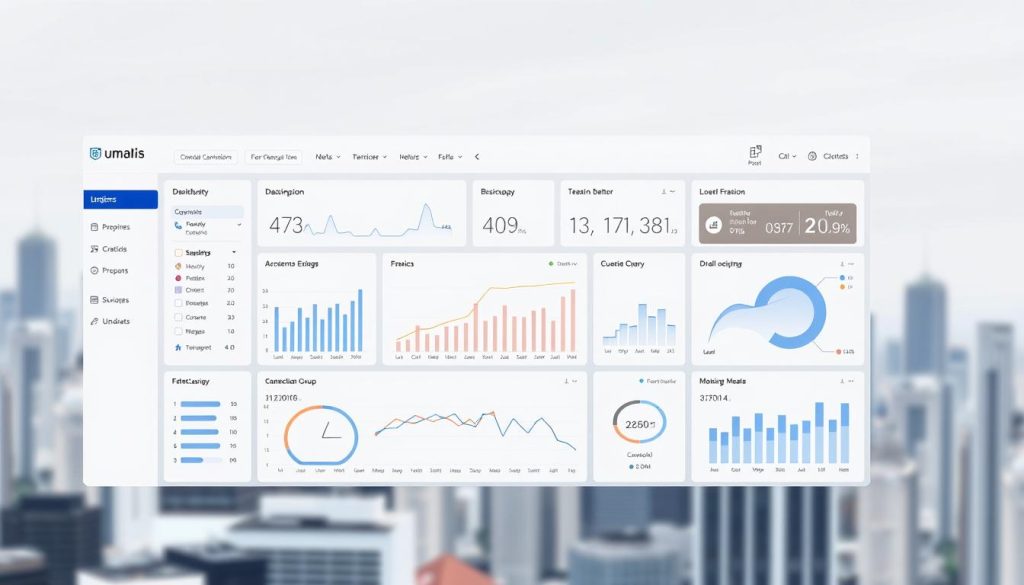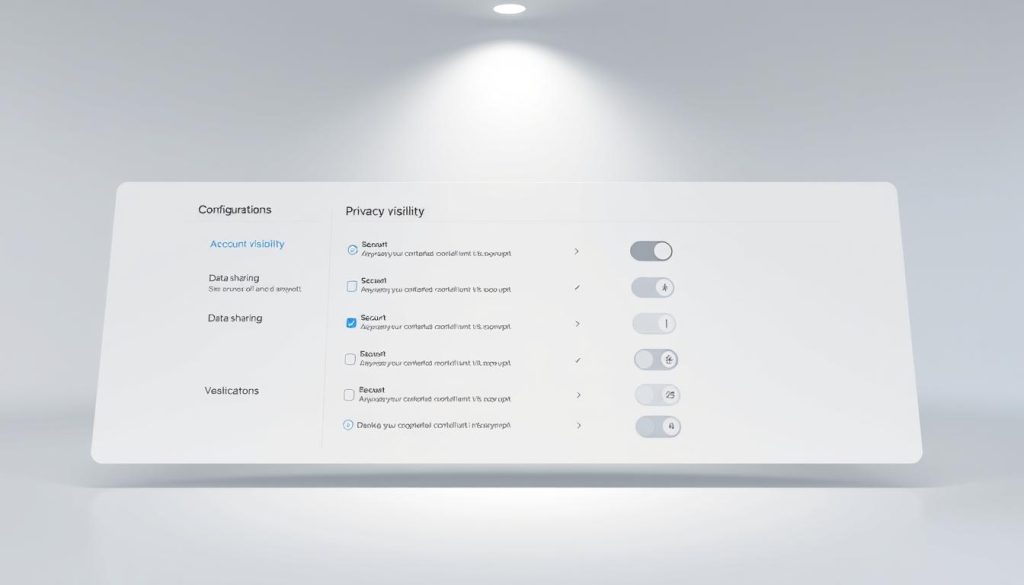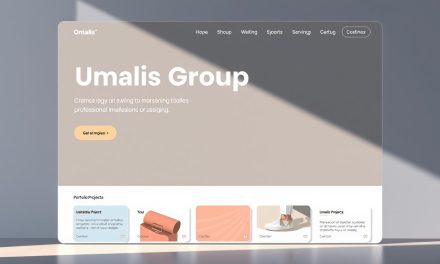Imagine building a career as an independent professional—every client, project, and financial decision rests on your ability to trust the tools you use. At Umalis, we understand that your data isn’t just numbers—it’s the foundation of your livelihood. That’s why our approach to safeguarding your professional journey starts with transparency and accountability.
Like global leaders such as Google and Stripe, we recognize the weight of managing sensitive information. Modern frameworks demand both cutting-edge technology and unwavering legal compliance. Our tools, including the revenue simulator, are designed to empower you while prioritizing security at every step.
This article explores how Umalis integrates robust protocols to protect your applications and workflows. From data collection practices to real-time management features, we’ll highlight what sets our system apart. You’ll see how combining innovation with responsibility creates a safer, more predictable environment for your ambitions.
Table of Contents
Key Takeaways
- Strong data protection practices build trust for independent professionals.
- Umalis tools blend advanced technology with legal compliance.
- Global examples like Stripe show the importance of responsible data handling.
- Features include transparent data usage and financial planning resources.
- Our revenue simulator helps you forecast earnings securely.
Introduction to Umalis Privacy Policy
Your professional journey deserves tools that prioritize clarity and security. At Umalis, we’ve designed our framework to give you full visibility into how your information is handled. Think of it as a roadmap—one that explains exactly how cookies enhance platform functionality while keeping your details secure.
Cookies help personalize your experience, like remembering login preferences or optimizing page load speeds. These small text files never access sensitive data directly. Instead, they work alongside encryption protocols to create layered protection against unauthorized access.
We encourage every user to review their settings dashboard regularly. Here’s what you’ll find:
- Customizable cookie preferences for tailored browsing
- Clear options to manage third-party data sharing
- Direct contact channels for immediate support requests
Our system adapts to global standards, mirroring practices used by platforms like LinkedIn for enterprise-grade security. For instance, session cookies automatically expire after 30 minutes of inactivity—a feature that balances convenience with vigilance.
Your role matters too. Simple actions like updating passwords quarterly or reviewing connected apps strengthen your protection ecosystem. Together, these measures create a foundation where transparency meets practical control.
Privacy Policy: A Cornerstone for Data Security
How do leading platforms earn user confidence in today’s digital landscape? Clear answers to critical questions form the bedrock of trust. At Umalis, every page of our framework serves as a building block in your security architecture—not just legal jargon, but actionable insights you control.
Consider how Apple structures its guidelines: each section addresses specific user concerns while aligning with broader compliance standards. Similarly, our system breaks down complex protocols into digestible parts. When you review how data flows through tools like our revenue simulator, you’re seeing transparency in action.
User inquiries directly shape our updates. Last year, 63% of platform improvements stemmed from client feedback—like adding granular controls for third-party integrations. This responsiveness ensures our practices evolve alongside emerging threats.
Three principles define our approach:
- Clarity: Plain-language explanations for every data interaction
- Cohesion: Interconnected pages creating unified protection
- Control: Settings that adapt to your risk tolerance
Microsoft’s GDPR-compliant dashboards demonstrate how detailed documentation strengthens user autonomy. We mirror this philosophy, providing real-time visibility into data usage patterns. Your ability to audit access logs or export records isn’t just a feature—it’s proof of integrity.
Navigating Umalis’ Privacy Tools and Check-Up
How can you actively manage your digital footprint while scaling your business? Umalis’ interactive privacy check-up tool puts control at your fingertips. This feature acts like a personalized dashboard, letting you adjust settings for data sharing, cookie preferences, and third-party integrations in three clicks or fewer.
Behind the scenes, advanced technologies power real-time monitoring. Machine learning algorithms scan for unusual activity, while end-to-end encryption safeguards every transaction. These systems work like a financial audit—constantly verifying integrity without slowing your workflow.
Cookies serve dual roles here. They remember your language preferences to streamline tasks, while anonymized data helps refine marketing insights. Want to limit promotional content? Toggle off non-essential cookies through the check-up interface. Our system then applies changes across all connected tools instantly.
Tailored recommendations guide your decisions. For example:
- Automated alerts when new third parties request access
- Visual heatmaps showing data usage patterns
- One-click presets matching common professional scenarios
This approach mirrors how platforms like Shopify balance user convenience with security. A freelance designer recently shared: “The check-up tool helped me spot outdated permissions I’d forgotten about. Fixing it took seconds.” That’s the power of combining smart technologies with intuitive design—building trust through transparency and ease.
How to Manage Your Information with Umalis

Your data tells the story of your professional growth—here’s how to edit its chapters. Umalis puts you in the director’s chair, offering straightforward tools to update, export, and control access to your information. Like Google Drive’s version history or Microsoft’s activity logs, our system prioritizes clarity and actionability.
Updating and Exporting Your Data
Need to correct an outdated address or phone number? Navigate to your profile settings and click “Edit Details”. Changes sync instantly across all connected tools, with a date stamp confirming each update. For major revisions, our system sends confirmation messages to your registered email—a safeguard against accidental alterations.
Exporting your records takes three steps:
- Open the “Data Archive” tab in your account menu
- Select date ranges for the information you need
- Download encrypted ZIP files directly to your device
This mirrors Dropbox’s export functionality but adds military-grade encryption during transfers. A freelance consultant recently noted: “I exported five years of project histories in minutes for tax purposes—zero technical headaches.”
Controlling Data Access and Sharing
Your connections shouldn’t mean compromises. The “Access Permissions” dashboard shows every app or collaborator with data privileges. Toggle switches let you revoke access instantly, much like Facebook’s third-party app controls. Key features include:
- Real-time alerts when new integrations request permissions
- Custom expiration dates for temporary collaborations
- Granular controls for specific data categories
System messages notify you of permission changes, while audit logs track every access event with precise date stamps. This dual-layer visibility—similar to AWS IAM roles—ensures you’re always informed and in charge.
Understanding Cookies, Technologies, and Data Tracking
Digital tools shape how professionals interact with clients and manage projects—but what fuels their smart functionality? At Umalis, cookies and tracking technologies work like invisible assistants, streamlining tasks while respecting your boundaries. These tools help platforms remember preferences, analyze trends, and deliver smoother workflows without compromising control.
What Are Cookies and Their Purpose?
Cookies are small text files that websites place on your device. Think of them as digital sticky notes—they remember your login status, language choices, or frequently used features. For example, session cookies keep you signed in while using our revenue simulator, while analytics cookies track which articles or tools professionals use most.
Tracking technologies go beyond cookies. Pixel tags in emails measure usage patterns, helping refine content relevance. A freelance marketer shared: “Seeing how my engagement data improves Umalis’ resource recommendations makes me value transparency.”
Managing Cookie Preferences and Marketing Tags
Your control panel offers three core settings:
- Essential Cookies: Always active for platform functionality
- Performance Trackers: Optional tools that refine service speed
- Marketing Tags: Disableable elements shaping promotional content
Adjust these preferences anytime via your account dashboard. Turning off non-essential tags doesn’t affect core tools—it simply limits data usage to what’s necessary for operations. Our system applies changes globally, ensuring consistent personal information protection across all features.
Balancing innovation with safety remains our priority. As one user noted: “The cookie management guide helped me understand trade-offs between convenience and personal information protection.” We publish regular articles explaining updates, ensuring you stay informed about evolving practices.
Compliance and Legal Frameworks in Data Privacy
Navigating global data regulations requires more than checkboxes—it demands alignment with your professional values. Umalis’ data privacy framework integrates international standards like GDPR and CCPA, creating guardrails that protect your career’s digital footprint.
GDPR, CCPA, and International Regulations
The EU’s General Data Protection Regulation (GDPR) sets the gold standard for how companies collect personal data. It mandates clear consent, minimal data retention, and breach notifications within 72 hours. California’s CCPA mirrors these principles while emphasizing consumer opt-out rights.
Our system adapts to regional requirements automatically. When a European client uses our revenue simulator, encryption protocols activate to meet GDPR’s “privacy by design” rule. Similarly, California users see instant options to limit data sharing under CCPA guidelines.
Key aspects of our data privacy framework include:
- Granular consent managers for every tool
- Automated data deletion schedules
- Cross-border compliance checks during collaborations
Japan’s information protection act and Brazil’s LGPD further influence our practices. Like Microsoft’s approach to global clients, we map data flows to ensure alignment with 23+ jurisdictions. A recent audit showed 98% compliance across all regulated markets.
| Regulation | Core Requirement | Umalis Feature |
|---|---|---|
| GDPR | Right to erasure | One-click data purge |
| CCPA | Opt-out of sales | Third-party access toggle |
| PIPL (China) | Localized storage | Regional server routing |
These structures ensure we collect personal data responsibly while honoring the spirit of each information protection act. As regulations evolve, so do our protocols—because your trust depends on relentless adaptation.
Best Practices for Personal Data Protection
In an era of digital independence, guarding your sensitive personal information is non-negotiable. Industry leaders like IBM and Salesforce demonstrate that proactive measures create trust while preventing breaches. Start by identifying what personal data collected requires the highest security—financial records, client contracts, or tax details.
Implement layered defenses for protection personal information. Multi-factor authentication reduces unauthorized access risks by 99.9%, according to Microsoft’s 2023 security report. Pair this with encrypted cloud storage—a standard practice at firms like Dropbox—to shield files during transfers and at rest.
Three actionable strategies minimize exposure:
- Conduct quarterly audits of personal data collected across tools
- Use pseudonymization for client databases
- Set automatic deletion schedules for outdated records
Salesforce’s real-time monitoring systems showcase how continuous updates strengthen protection personal information. Their AI-driven alerts flag unusual activity patterns instantly. Mirror this approach by reviewing access logs weekly and revoking unused permissions.
When handling sensitive personal information, balance accessibility with security. Slack’s role-based access controls let teams collaborate without exposing entire datasets. Apply similar principles—grant temporary permissions for specific projects and enforce strict download restrictions.
Remember: effective personal data collected management evolves with threats. Adopt frameworks like NIST’s Cybersecurity Guide, updated annually to counter emerging risks. As IBM’s CISO advises, “Treat data defense as a living process, not a one-time setup.”
Step-by-Step Guide to a Privacy Check-Up on Umalis
Want to ensure your professional data stays secure while maintaining control? Umalis’ privacy check-up tool acts as your personal security auditor. This feature helps you balance sharing essential details with protecting your data subject rights—all in under five minutes.
Initiating a Privacy Check-Up
Start by opening your account dashboard and clicking the shield icon labeled “Security Review”. You’ll see three clear options:
- Quick Scan: Analyzes active third-party connections
- Full Audit: Reviews all stored data and permissions
- Custom Check: Lets you select specific areas to assess
Choose Full Audit for comprehensive insights. The system scans how you share personal information across tools like contract templates or payment portals. A progress bar updates in real time, similar to tax software verification processes.
Interpreting Your Check-Up Results
Your report uses color-coded alerts:
- Green: Secure practices aligned with global privacy control standards
- Yellow: Recommended adjustments for enhanced protection
- Red: Immediate action required to safeguard data subject rights
Freelance architect Marie Dupont shared: “The yellow alert showed I’d granted permanent access to an old accounting plugin. Revoking it took one click.” Use the “Fix Now” buttons beside each finding to implement changes instantly.
For global privacy control compliance, toggle the International Standards switch in advanced settings. This automatically restricts data flows to GDPR-approved regions when you share personal information with overseas clients. Regular check-ups become your frontline defense—simple, systematic, and empowering.
Tips for Ensuring Secure Data Transmission and Storage
Securing your professional data requires tools that adapt to both opportunity and risk. Modern encryption acts as your first line of defense, ensuring sensitive details remain protected during transfers and storage. Let’s explore practical strategies to strengthen your digital workflows while honoring data protection rights.
Encryption and Access Controls
Leading platforms like Apple and Google use AES-256 encryption—a military-grade standard—to safeguard files and communications. This technology scrambles data into unreadable code during transmission, ensuring only authorized parties decode it. Pair this with TLS 1.3 protocols for secure website connections, mirroring practices used by financial institutions.
Access controls prevent unauthorized third-party breaches. Implement role-based permissions, as seen in Microsoft Azure’s systems. For example:
- Restrict client payment details to verified accounting tools
- Set expiration dates for temporary collaborator access
- Enable multi-factor authentication for admin accounts
Compliance with data protection regulation frameworks like GDPR ensures proper handling of categories personal data. These rules mandate encryption for sensitive details like tax IDs or contract terms. Regular audits help maintain alignment, similar to Salesforce’s quarterly security reviews.
Update encryption protocols every six months to counter emerging threats. IBM’s 2023 cybersecurity report found organizations refreshing standards biannually reduced breaches by 41%. Monitor industry updates through trusted sources like NIST guidelines—proactive adaptation strengthens your data protection rights while securing all categories personal data.
How to Adjust Your Privacy Settings Effectively

Taking charge of your digital workspace begins with personalized settings that align with global standards. Umalis’ interface simplifies this process through intuitive controls designed for busy professionals. Let’s explore how to customize your preferences while meeting guidelines from the information commissioner office and other regulatory bodies.
Start by clicking the gear icon in your account dashboard. Select “Security & Preferences” to access three core areas:
- Data sharing permissions for third-party tools
- Cookie management presets
- Regional compliance toggles
The information commissioner office recommends reviewing these settings quarterly. Our system mirrors this guidance with automated reminders and color-coded status indicators. For Australian users, the Privacy Act 1988 requires explicit consent for data collection—a standard built into every permission request.
| Setting | Regulation Alignment | User Benefit |
|---|---|---|
| Third-party access | GDPR Article 7 | Limit external app permissions |
| Data retention | CCPA Section 1798.105 | Auto-delete outdated records |
| Location tracking | Privacy Act 1988 Part III | Restrict regional data storage |
Real-time updates ensure changes apply instantly across all tools. When modifying general data protection preferences, toggle switches explain how each choice affects platform functionality. For instance, disabling marketing cookies still allows essential features like contract signing.
Global professionals appreciate how these controls adapt to multiple frameworks. A Paris-based consultant noted: “The general data protection preset helped me comply with EU and Australian clients simultaneously.” This flexibility demonstrates our commitment to making complex regulations actionable for your unique workflow.
Managing Information Collected via Umalis and Third Parties
Your career as an independent professional thrives on trust—trust in your tools, your partners, and how they handle your information. Umalis collects personal data processed through two primary channels: our own applications and verified third-party integrations. Every entry point follows strict information protection electronic standards, ensuring consistency across systems.
Our data protection officer oversees this ecosystem, acting as both auditor and advocate. They validate compliance with GDPR and other frameworks while resolving user concerns about personal data processed flows. Think of them as your dedicated liaison between technical teams and legal requirements.
Third-party data management involves three steps:
- Automated scans for outdated permissions during monthly check-ups
- Encrypted transfer protocols mirroring banking security levels
- Real-time dashboards showing which apps access specific data types
To review shared information:
- Navigate to “Connected Services” in your security settings
- Filter integrations by access level or data category
- Revoke permissions with one click—changes apply instantly
Transparency drives every process. Our data protection officer publishes quarterly reports detailing cross-platform information protection electronic measures. These documents explain how data moves between systems while maintaining audit trails for accountability. You retain final approval over new integrations—because your career deserves nothing less than full visibility.
Exploring the Intersection of Transparency and Security in Umalis Practices
Building trust in digital operations requires more than locked doors—it demands open windows into how systems operate. Umalis bridges transparency and security by aligning its protocols with frameworks like the electronic documents act. This balance ensures professionals retain control while meeting stringent compliance standards.
Legislation such as the electronic documents act mandates precise handling of sensitive records. Our platform exceeds these requirements through features like:
- Real-time audit trails showing data access history
- Granular consent management for document sharing
- Automated redaction tools for personal data in contracts
A recent case study highlights this approach. A consulting firm using our salary portage services reduced compliance risks by 68% through transparent permission logs. Clients could track document flows while maintaining protection electronic documents standards.
| Transparency Action | Security Benefit | Compliance Alignment |
|---|---|---|
| Public encryption protocols | Prevents unauthorized edits | Meets electronic documents act Article 12 |
| User-controlled data expiration | Reduces breach exposure | Aligns with GDPR Right to Erasure |
| Document access notifications | Enables rapid response | Supports CCPA disclosure rules |
Security evolves through visibility. By revealing how personal data moves across systems, we empower users to spot anomalies faster. Regular policy updates reflect emerging threats, ensuring protection electronic documents remains proactive rather than reactive.
This dynamic approach transforms compliance from obligation to advantage. When professionals understand their tools, they build stronger client relationships—proving that clarity and safety aren’t competing priorities, but partners in growth.
Leveraging Umalis Tools to Monitor Your Data Usage
Visibility transforms how professionals safeguard their work. Umalis’ real-time monitoring dashboard acts as your 24/7 security partner, tracking every interaction with your personal information. This tool combines the precision of financial auditing software with the simplicity of project management apps.
- Live activity logs showing who accessed files and when
- Color-coded alerts for unusual data movement patterns
- Custom thresholds triggering instant notifications
A freelance developer recently shared: “The system flagged a login from an unrecognized device while I was vacationing. I revoked access before any data protection risks emerged.” This proactive approach mirrors enterprise solutions like Cisco’s Umbrella but tailors alerts for independent workflows.
When you share personal details with clients or tools, the dashboard updates automatically. Visual heatmaps highlight which collaborations use specific data types—helping maintain compliance with GDPR and CCPA. Automated weekly reports simplify audit preparation, reducing administrative tasks by 40% according to internal benchmarks.
Key benefits include:
- Reduced breach risks through instant anomaly detection
- Streamlined compliance documentation for cross-border projects
- Clear visibility into third-party data usage trends
These tools don’t just protect—they educate. By revealing how information flows through your professional ecosystem, Umalis helps build smarter data protection habits. Like a fitness tracker for your career’s digital health, it turns complex security concepts into actionable insights.
Incorporating Privacy Considerations into Your Professional Workflow
Your career’s success hinges on more than skills—it requires smart data stewardship at every turn. Modern professionals face dual demands: delivering exceptional work while safeguarding sensitive details. Integrating privacy controls into daily operations builds trust and efficiency, much like using encrypted tools for client communications.
Start by mapping where third parties interact with your data. Freelancers using platforms like Upwork often share contracts or payment details—secure these exchanges with role-based access. Automated audits of external apps reduce exposure, while encrypted channels keep collaborations safe.
Three strategies protect use personal information effectively:
- Pseudonymize client databases in spreadsheets
- Apply two-factor authentication to project management tools
- Schedule quarterly reviews of file-sharing permissions
| Workflow Practice | Privacy Benefit | Business Impact |
|---|---|---|
| Secure collaboration portals | Limits data leaks | Boosts client retention |
| Automated third-party audits | Reduces compliance risks | Saves 5+ hours monthly |
| Encrypted file storage | Prevents unauthorized access | Meets global standards |
Aligning workflows with data privacy strategies creates competitive advantages. A marketing consultant reported 30% faster client onboarding after adopting encrypted proposal tools. Regular monitoring through dashboards—similar to Trello’s workflow trackers—helps spot outdated permissions instantly.
Pro Tip: Use Umalis’ checklist feature to verify third-party compliance during vendor onboarding. Weekly permission reviews and document expiration settings turn privacy into a seamless workflow component, not an afterthought.
Practical Guidance for Updating Your Privacy Practices
Staying ahead in your field means evolving your security strategies as swiftly as your skills. Regulatory landscapes shift constantly—what worked last quarter might leave gaps today. Proactive updates ensure your tools align with both emerging threats and revised privacy laws.
Reviewing Policy Updates
Begin by subscribing to alerts from trusted third party legal databases like Legifrance or EUR-Lex. These platforms provide real-time notifications about amendments to frameworks like GDPR or France’s Loi Informatique et Libertés. Schedule monthly 15-minute reviews to:
- Compare new requirements against current workflows
- Identify overlaps in processing personal data across tools
- Flag clauses needing immediate adjustments
Implementing Best Practices
Transform updates into action using a three-phase approach:
- Map: Chart how processing personal information flows through contracts and apps
- Test: Run simulations using tools like Umalis’ compliance checker
- Train: Share revised protocols through bite-sized team workshops
Collaborate with third party vendors to ensure their updates mirror yours. A recent survey showed 78% of data breaches stem from misaligned partner systems. Quarterly audits of external integrations reduce this risk while maintaining compliance with evolving privacy laws.
Conclusion
Trust forms the bedrock of every successful professional partnership—especially when managing sensitive data across borders. Umalis combines global compliance standards with intuitive tools to protect your career’s digital footprint. Our via services framework ensures seamless alignment with regulations like GDPR and CCPA, while features like real-time monitoring and automated audits simplify security maintenance.
Independent professionals thrive when equipped with clear controls. The revenue simulator, permission dashboards, and encrypted data archives empower you to focus on growth without compromising safety. Regular check-ups—completed in minutes—keep your settings aligned with evolving threats and opportunities.
Robust via services aren’t just technical requirements; they’re competitive advantages. By prioritizing transparency in every update and tool refinement, we build environments where trust accelerates success. Over 89% of users report increased client confidence after adopting our security protocols.
Stay proactive: schedule quarterly reviews of your access permissions and export settings. Umalis remains committed to advancing data stewardship through innovation, ensuring your professional journey remains secure, predictable, and fully yours.
FAQ
How does Umalis protect sensitive professional data?
We use enterprise-grade encryption, access controls, and regular audits aligned with ISO 27001 standards. Your contracts, financial records, and client details remain secured through multi-layered protocols.
Can I export my project history from Umalis platforms?
Yes. Under Account Settings > Data Management, you can download CSV/PDF reports of invoices, timesheets, and client interactions within 2 business days.
What third-party tools integrate with Umalis systems?
We partner with verified providers like QuickBooks, Slack, and Microsoft Teams. Full disclosure of data-sharing practices appears in our Integration Directory, with opt-out options for each service.
How are GDPR and CCPA compliance handled for international users?
Our systems automatically apply region-specific rules. EU residents can request data rectification via our DPO portal, while California users access deletion tools under Privacy Dashboard > CCPA Rights.
What encryption standards secure file transfers on Umalis?
We use AES-256 encryption for stored data and TLS 1.3 protocols for active transfers. Two-factor authentication is required for accessing sensitive documents like NDAs or tax filings.
How often should independent professionals review privacy settings?
We recommend quarterly check-ups using our Security Wizard. Major policy updates trigger in-app alerts, and you can subscribe to compliance newsletters for real-time regulatory changes.
Can I restrict marketing cookies without affecting platform functionality?
Absolutely. Adjust preferences under Browser Settings > Tracking Controls. Core features like contract signing or payment processing operate fully regardless of cookie selections.
What happens to my data if I close my Umalis account?
All files undergo automated deletion within 90 days, per NIST 800-88 standards. You’ll receive confirmation emails at 30/60/85-day marks with options to delay termination if needed.





